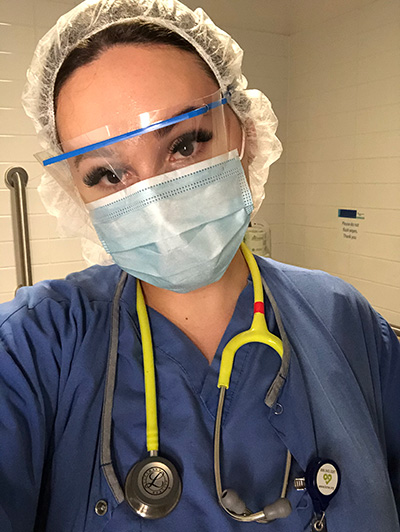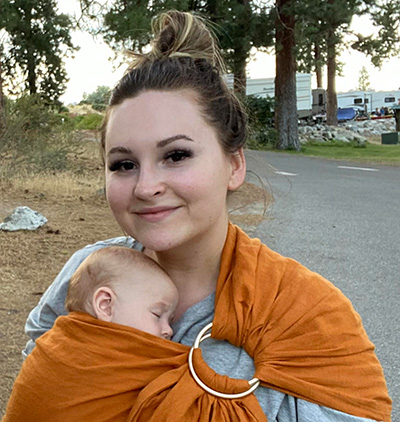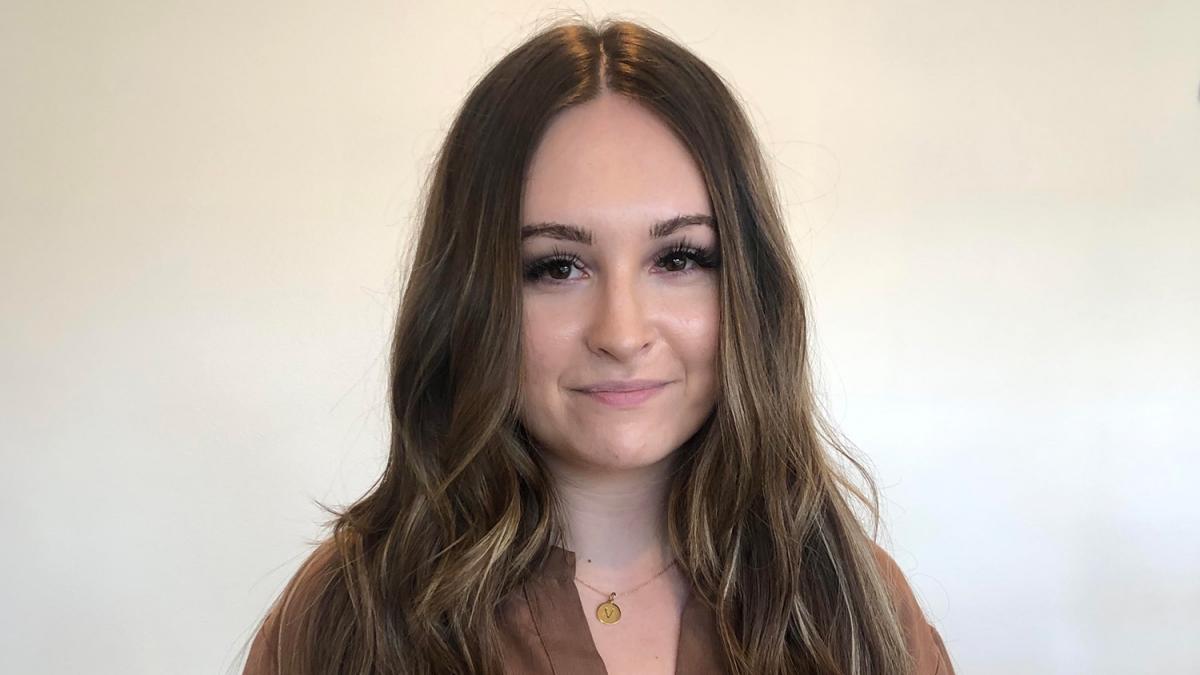Inna Antonchuk
MPH, Environmental and Occupational Health
Hometown
Rivne, Ukraine
Future plans
Continuing to work as a nurse as well as applying her public health training, perhaps with a government agency
“I am very interested in immigrant occupational health but also in public health policy."
- Inna Antonchuk
Before starting an MPH at the UW Department of Environmental & Occupational Health Sciences (DEOHS), Inna Antonchuk worked as a nurse providing care to critically ill patients.
She developed an interest in occupational and environmental health after experiencing workplace injuries and seeing her coworkers, friends and family experience preventable health issues related to work.
Because of these experiences and her desire to use her nursing skills to address population health on a larger scale, she chose to pursue an MPH in Environmental and Occupational Health.
Respiratory protection for assisted living
Antonchuk recently worked with occupational health nurses at the Washington State Department of Health (DOH) on a program to evaluate the nurses’ outreach efforts.
The project was her capstone project for the Northwest Center for Occupational Health and Safety (NWCOHS) Work and Health Graduate Certificate.
Washington was one of the first state health departments to use occupational health nurses for outreach programs in long-term care facilities.
Since 2020, the occupational health nursing team at the DOH has worked on a project to protect respiratory health in long-term care facilities, including testing the fit of respirators, developing educational materials on respiratory protection, and providing guidance and expertise on occupational health issues.

Evaluating outreach efforts in occupational health
The DOH program evaluation focused on small assisted living facilities known as adult family homes that received occupational health nursing consultation services in 2021.
The team assessed the facilities’ progress in respiratory protection programs and how DOH could improve these services in the future.
In collaboration with the team, Antonchuk created a list of survey questions and a data collection tool in the clinical web application REDCap, piloted survey questions and conducted phone interviews with facilities.
The team reviewed the responses to learn how to better assist adult family homes in the future.
Overall, the responses were positive, and representatives of the homes said they would like to continue to receive information and assistance going forward.
Finding mentorship and networking
Through her capstone, Antonchuk appreciated the opportunity to network and learn from her mentors in a field that is new to her as a nurse.
Her DOH mentorship team comprised UW occupational health nursing program and NWCOHS alumni Catherine Connon, Stella Daniels and Mikkie Nakamura. The team also had a wonderful experience mentoring Antonchuk and contributing to the development of future occupational health nurses.
Antonchuk is especially grateful to Professors Butch de Castro and Jenny Tsai, who direct the Occupational Health Nursing program, for providing guidance and connecting her to learning opportunities.
In the future, Antonchuk is excited to find new ways to apply her nursing and public health skills to investigate questions and promote public and worker health. This experience has been instrumental for her professional development and academic career, she said.





